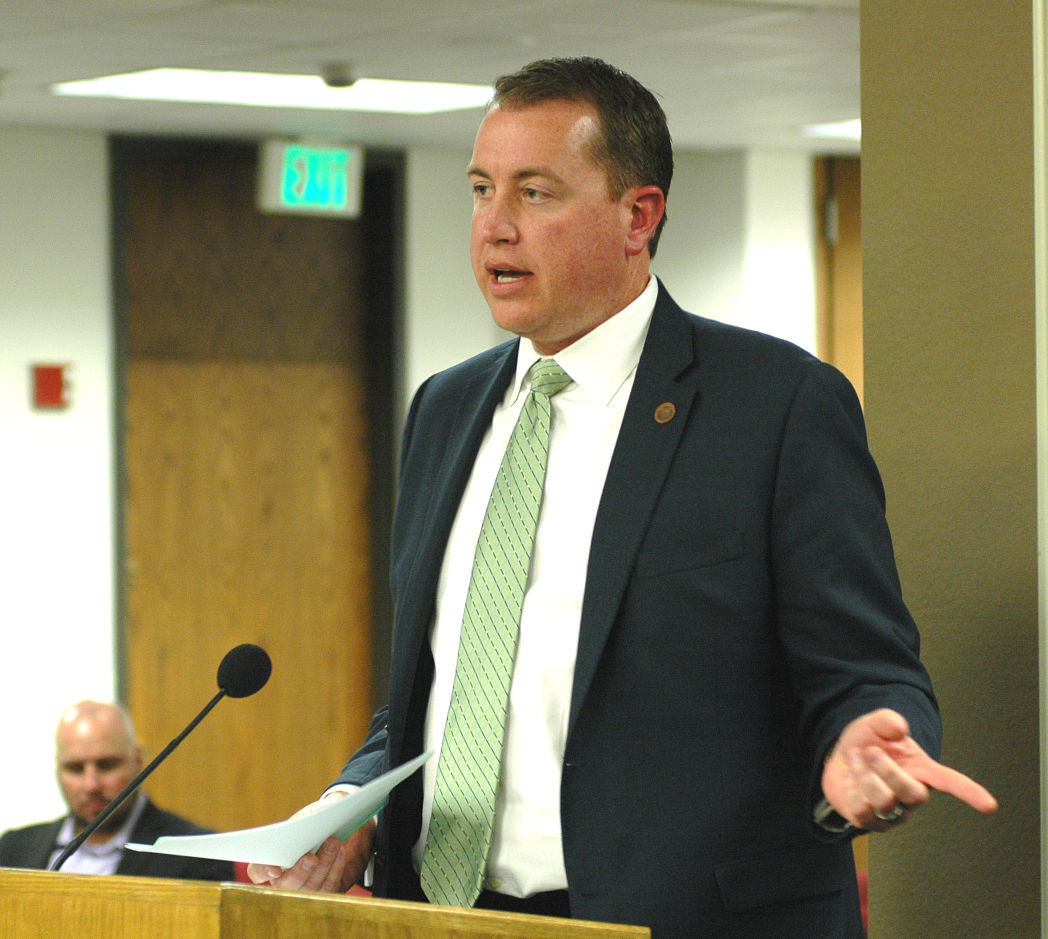PHOENIX — State lawmakers voted Thursday to approve an explanation of Proposition 123 over objections by state Treasurer Jeff DeWit that it is misleading — and probably illegal.
And now he is weighing whether to ask a court to intercede ahead of the May 17 election to change the distribution formula for state land trust proceeds — and possibly refusing to comply with the law even if voters approve it.
The language, which will be placed in pamphlets mailed to voters ahead of the special election, details a plan approved by lawmakers in October to increase by more than $2 billion over the next decade the amount of money taken from the state land trust for schools. That plus other state dollars should mean an extra $3.5 billion for schools through 2025.
It also would end a 5-year-old lawsuit filed against the state by schools that say lawmakers illegally ignored a 2000 voter-approved requirement to boost state aid annually to account for inflation.
What bothers DeWit is the claim by Gov. Doug Ducey and other supporters of the ballot measure that it will not dip into the principal of the trust. DeWit says that’s a lie designed to sway votes.
The trust is now worth about $5.1 billion.
DeWit estimated the state will sell about $100 million a year in state trust land. That would put the value of the trust in 2025 at a minimum of $6.1 billion.
But DeWit said if voters approve Proposition 123, the trust will be worth just $6 billion, even when investment income is added in. That, he said, means the measure effectively would reduce what the principal would otherwise be despite what voters are being told.
That, however, is only a small part of the problem.
DeWit said he believes the larger distributions cannot take place unless Congress amends the law that gave Arizona the land in 1912 when it became a state. He said that’s important for voters to know because if Congress refuses, the entire deal to end the school funding lawsuit falls apart.
That contention was refuted by former Congressman John Shadegg. He said a 1999 amendment to that 1912 law that he sponsored is broad enough to allow Arizona voters, by approving the required amendment to the state Constitution, to decide how they want to spend the trust.
In fact, he told lawmakers that he reads the 1999 law to allow voters to simply decide to drain the entire trust if they want.
DeWit said after Thursday’s vote he has not decided what to do next.
By law, the legislative council, composed of state lawmakers, is required to prepare an “impartial analysis” of every ballot measure. That language is included in pamphlets sent ahead of the election to every registered voter.
One option for the treasurer is to sue, asking a judge to rule the council’s explanation is legally flawed.
“I’ve got to look at the value to Arizona towards pushing that issue,” he said.
“They’ve purposely put some misleading statements in here in an attempt to get more votes at the ballot by misleading the public,” DeWit said. “I think it’s terrible.”
An even bigger legal dispute looms if Proposition 123 is approved. It would direct DeWit to distribute more trust dollars not only to schools but to other beneficiaries of the trust, ranging from universities to state prisons.
But DeWit said the only written legal opinion he has seen tells him he can do that only if Congress first amends federal law governing the state trust. And the treasurer said he has to obey that opinion “until such time as somebody can offer a differing legal opinion and put it out there that says something to the opposite.”
That potential stalemate would have to be resolved ultimately by the state Supreme Court.
The outcome depends on how someone reads the 1999 federal law.
Before then, federal statutes strictly limited how Arizona could invest its trust dollars. Shadegg said the aim of the 1999 law was to allow some of the dollars to be put into stock which, while more risky, had a higher rate of return.
The text of the law says the change was designed to help protect the trust from the effects of inflation.
But what it also says is that Arizona was free to decide how to use its trust dollars in accordance with any voter-approved limits in the state constitution.
Proposition 123 would amend the constitution to allow for larger withdrawals. Shadegg said he reads the 1999 federal law as allowing that to happen as long as voters give their OK.





